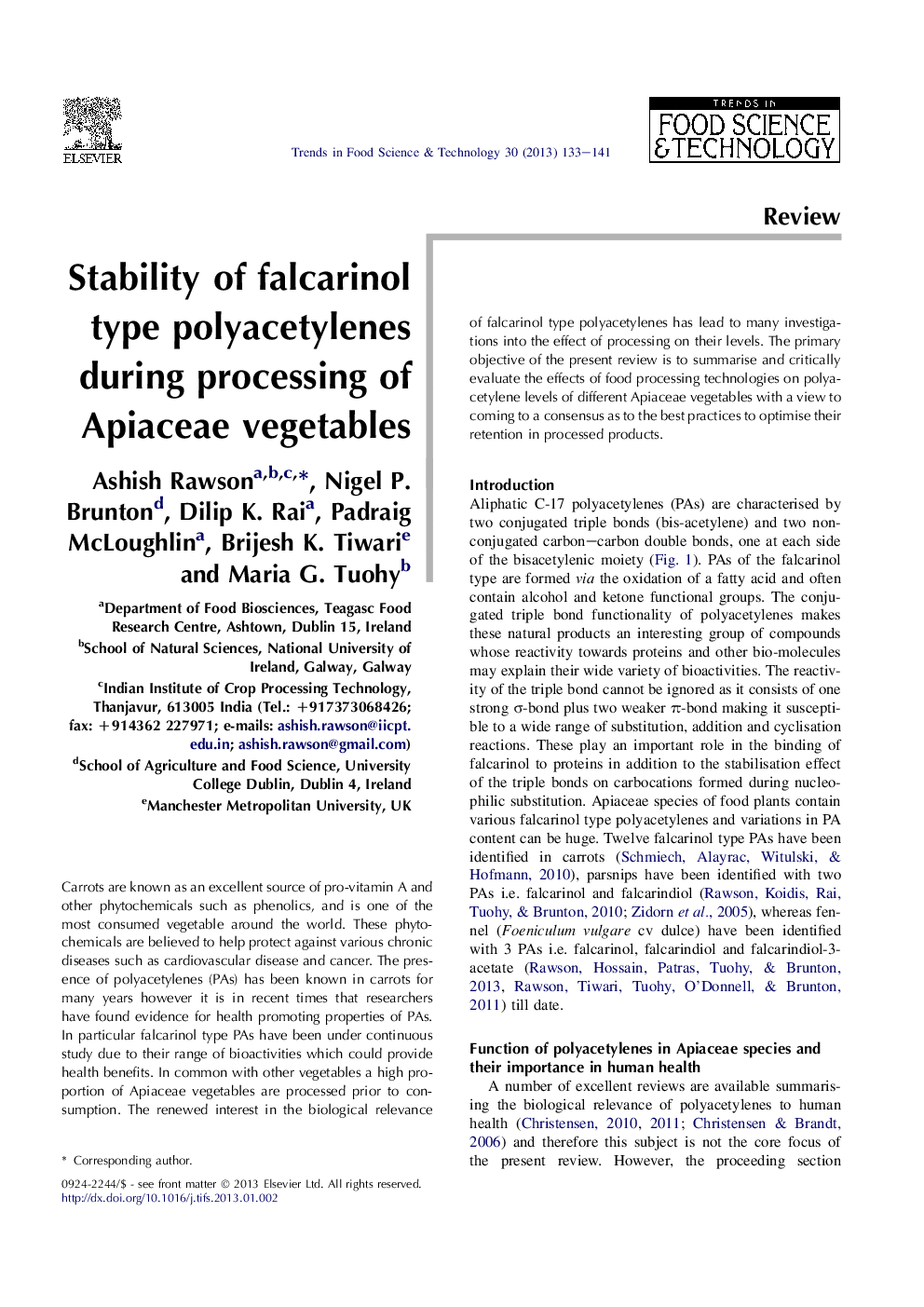| Article ID | Journal | Published Year | Pages | File Type |
|---|---|---|---|---|
| 2098753 | Trends in Food Science & Technology | 2013 | 9 Pages |
Carrots are known as an excellent source of pro-vitamin A and other phytochemicals such as phenolics, and is one of the most consumed vegetable around the world. These phytochemicals are believed to help protect against various chronic diseases such as cardiovascular disease and cancer. The presence of polyacetylenes (PAs) has been known in carrots for many years however it is in recent times that researchers have found evidence for health promoting properties of PAs. In particular falcarinol type PAs have been under continuous study due to their range of bioactivities which could provide health benefits. In common with other vegetables a high proportion of Apiaceae vegetables are processed prior to consumption. The renewed interest in the biological relevance of falcarinol type polyacetylenes has lead to many investigations into the effect of processing on their levels. The primary objective of the present review is to summarise and critically evaluate the effects of food processing technologies on polyacetylene levels of different Apiaceae vegetables with a view to coming to a consensus as to the best practices to optimise their retention in processed products.
► Changes in level of polyacetylenes from Apiaceae vegetables following processing are reviewed. ► Changes in the structure of C-17 polyacetylene for different processing and storage conditions are reviewed. ► Critical control points for retaining higher content of polyacetylenes has been identified.
